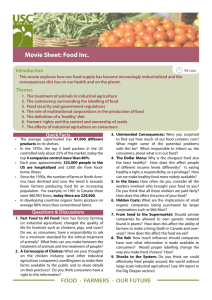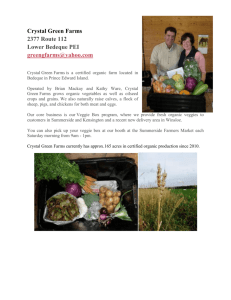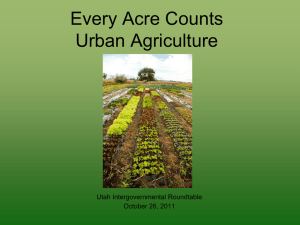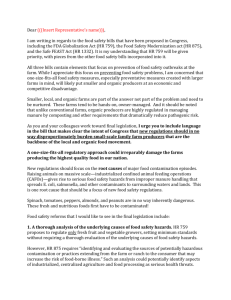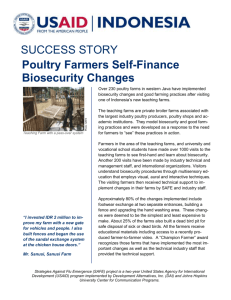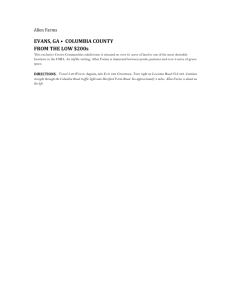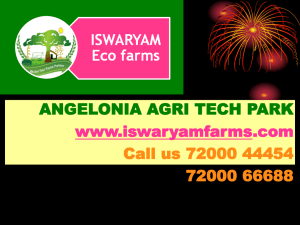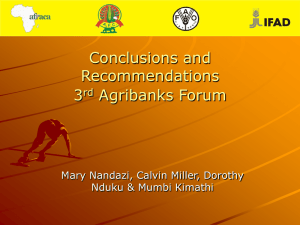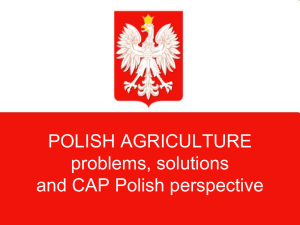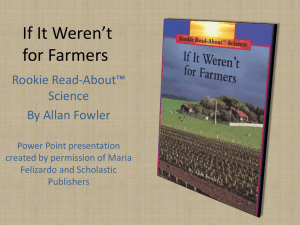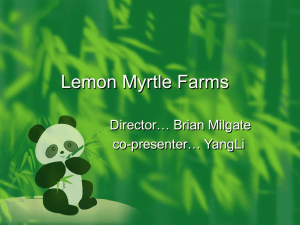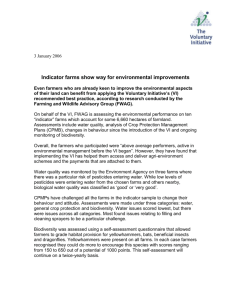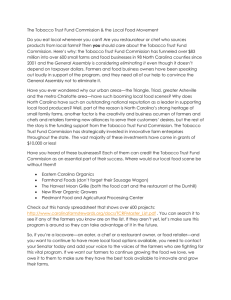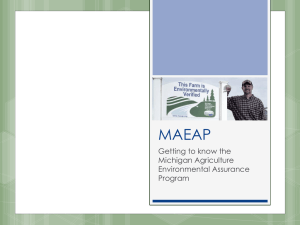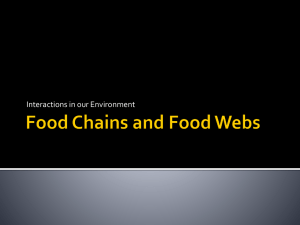PowerPoint - Agriculture of the Middle
advertisement
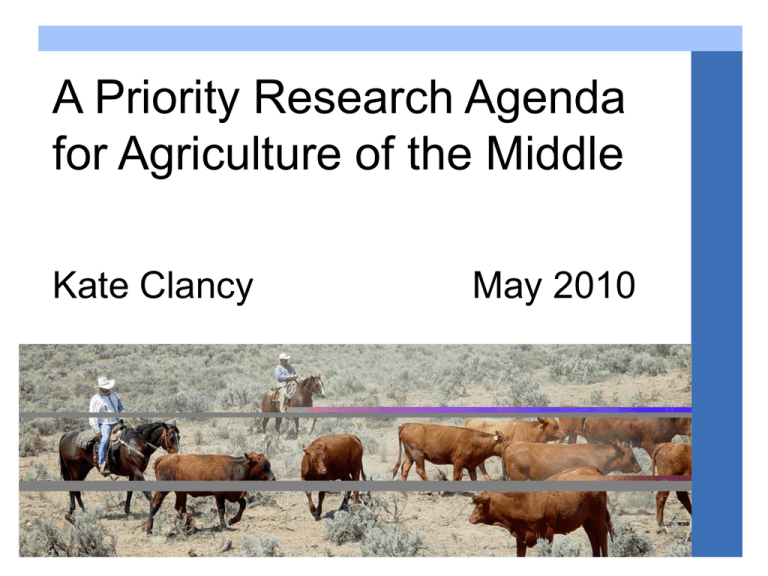
A Priority Research Agenda for Agriculture of the Middle Kate Clancy May 2010 Agriculture of the middle www.agofthemiddle.org What is Agriculture of the Middle? • A five year old research initiative • Addresses problems of disproportionate loss of midsize farms and ranches in the US • Addresses losses of markets and infrastructure needed for these farms and ranches Agriculture of the middle www.agofthemiddle.org Why are we setting a new research agenda? Cross-disciplinary thinking could lead to new approaches that address challenges and opportunities in the middle sector of agriculture Agriculture of the middle www.agofthemiddle.org How were the research ideas identified? Phase 1: We surveyed fifteen researchers across the country about their top four priorities for advancing organic and sustainable agriculture. This work was supported by the Organic Farming Research Foundation (ofrf.org) Phase 2: We interviewed thirty-five more researchers across a broader spectrum of disciplines. All of them were interested in Ag of the Middle, and most were researching this area. Agriculture of the middle www.agofthemiddle.org Highest ranking research ideas 18 research priorities were identified in four topic areas: – Impacts – Incentives – Scale – Value chains Agriculture of the middle www.agofthemiddle.org Research cluster area: Impacts • Analyze economic impact of local food production • Measure multiple benefits of different agricultural production systems • Compare internal and external costs of sustainable production and processing to conventional • Document effects of one-size-fits-all food safety policies • Conduct case studies of how improved access to land and capital has increased social equity for low resource farmers • Identify programs that would be most successful in increasing access of low-income populations to quality food Agriculture of the middle www.agofthemiddle.org Research cluster area: Incentives • Study factors, such as policy and values, influencing ecosystem services produced by midsized farms • Examine how federal and state policy can encourage the transition of more midsized farms to organic production • Conduct a national study on county permitting/licensing processes that affect small/mid scale production and processing • Design and evaluate incentive programs (packages) that reward farmers for building up capitals (e.g. soil, water, community) Agriculture of the middle www.agofthemiddle.org Research cluster area: Scale • Assess policies that influence profitability of different size farms producing different foods • Measure effects of farm size on energy use, product demand, farm income, types of crops across different regions, provision of ecosystem services, biomass production, food safety, and sustainable technology • Explore options for scaling up from local to regional markets • Determine which food safety regulatory costs are scale neutral Agriculture of the middle www.agofthemiddle.org Research cluster area: Value chains • Conduct more case studies/evaluations of marketing systems including wholesale and retail sourcing, markups throughout the supply chain, short supply chains, margins for distributors who aggregate small producers, and viable models for small and mid-scale meat processing • Look at how dynamics inside food value chains are different when the driver of the chain is different • Examine in depth how partners in a food value chain come together to explore and develop a chain • Determine how existing policies can be combined in a way to support food value chain development Agriculture of the middle www.agofthemiddle.org Where do we go from here? We hope this new agenda will inspire researchers to explore these issues. This research can be helpful to • groups of farmers changing their operations • entrepreneurs interested in value chains • local suppliers wanting to scale up • cities and regions interested in food security • policymakers who wish to facilitate these efforts Agriculture of the middle www.agofthemiddle.org Acknowledgements Funding for this project was provided by the University of Nebraska-Lincoln Center for Applied Rural Innovation. Thanks to the Center and to Nadine Lehrer for her assistance; to Fred Kirschenmann, Rob King, Larry Lev, Mark Lipson, and Steve Stevenson for their helpful advice throughout the project; and to the UW-Madison Center for Integrated Agricultural Systems for its help. Agriculture of the middle www.agofthemiddle.org
